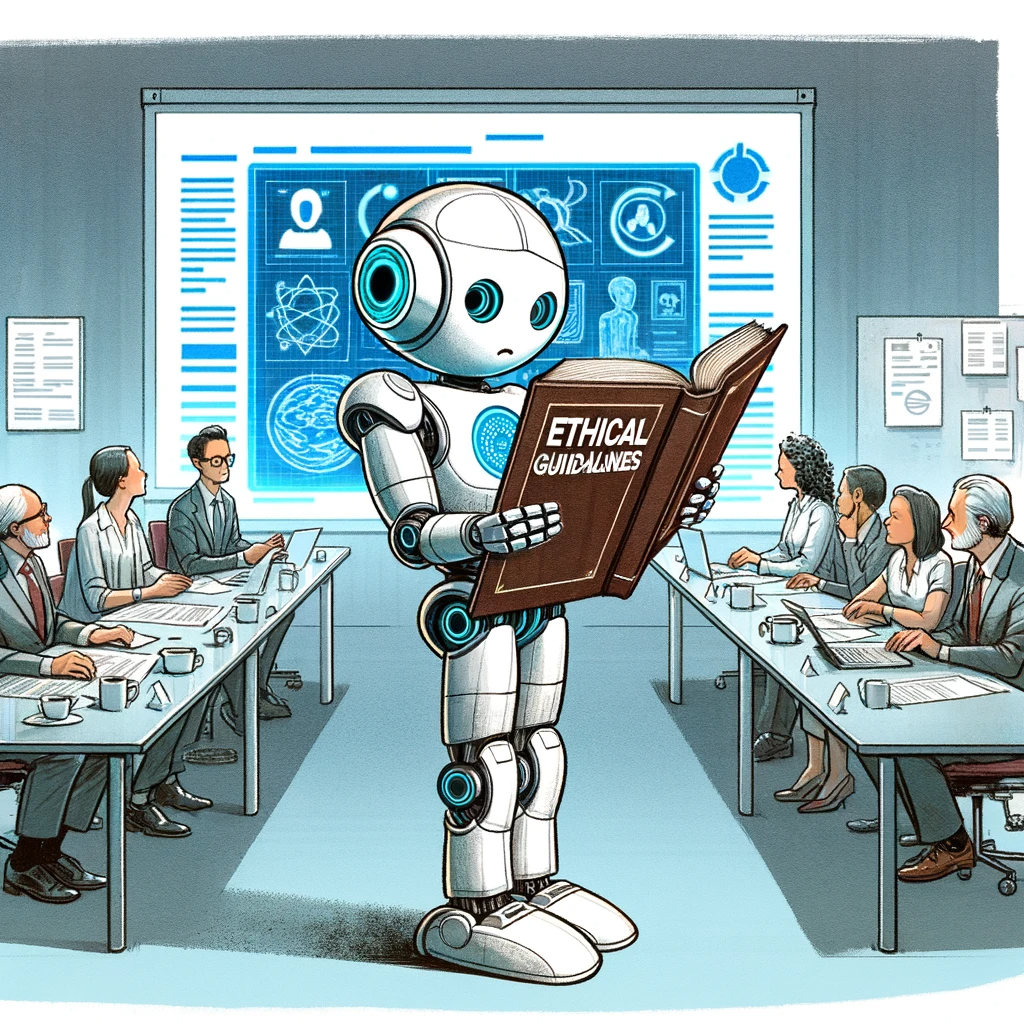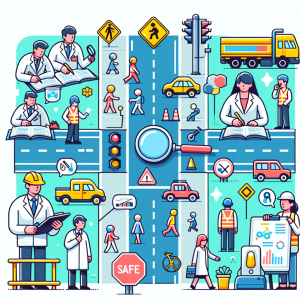
The Ethical Labyrinth of AI in Research: A Beginner’s Guide
As we venture into the 21st century, artificial intelligence (AI) continues to reshape our world, presenting groundbreaking possibilities and complex ethical dilemmas. The recent article Specific Challenges Posed by Artificial Intelligence in Research Ethics, published in Frontiers in Artificial Intelligence, delves into these intricate issues.
Understanding the Landscape
The Rise of AI in Research
AI isn’t just about robots and science fiction; it’s become a pivotal player in various research fields. From healthcare, where AI predicts diseases, to environmental studies forecasting climate change impacts, its influence is undeniable. However, with great power comes great responsibility, and the rapid advancement of AI has outpaced the ethical frameworks meant to guide it.
The Role of Research Ethics Boards (REBs)
REBs are guardians of ethical research, ensuring studies benefit society without undue harm or risk to participants. But as AI evolves, these boards face the daunting task of keeping up with technology that often challenges traditional ethical boundaries.
The Ethical Quagmire
Privacy, Bias, and Transparency
AI systems can process vast amounts of data, raising concerns about privacy and the potential for biased outcomes reflecting societal inequalities. Moreover, the “black box” nature of some AI systems makes it hard to understand how they make decisions, challenging the transparency we strive for in ethical research.
Evolving Guidelines and the Struggle to Keep Up
While international bodies and countries have attempted to create AI regulations, these often lag behind the technology’s rapid development. Consequently, REBs find themselves in tricky territory, needing more concrete guidelines to effectively navigate the ethical evaluation of AI research.
The Study’s Key Findings
From examining 28 papers, the study highlighted that while AI presents novel opportunities for research, it also introduces new ethical challenges that current guidelines don’t fully address. Key areas of concern include:
- Responsibility: As AI systems take on roles traditionally held by humans, assigning accountability becomes complicated.
- Data Bias: AI systems often inherit the biases in the data they’re trained on, leading to unequal and potentially harmful outcomes.
- Informed Consent: The complexity and unpredictability of AI make it challenging for participants to fully understand the risks and benefits of AI-involved research.
Moving Forward
A multidisciplinary approach involving ethicists, technologists, policymakers, and public stakeholders is crucial to harness AI’s potential responsibly. We need to:
- Update Ethical Guidelines: Create comprehensive, agile guidelines that address the unique challenges posed by AI.
- Promote Transparency: Strive for AI systems that are powerful, understandable, and explainable.
- Foster Global Collaboration: Encourage international cooperation to create standardized, ethical norms for AI research.
Conclusion: A Call to Action
As AI advances, staying informed and involved in the conversation is crucial for everyone, from researchers to the general public. Let’s work together to ensure that AI serves humanity’s best interests, guided by robust ethical principles.
Engage with the Source
For a deeper dive into the ethical intricacies of AI in research, read the full article “Specific Challenges Posed by Artificial Intelligence in Research Ethics”.
Unlock the Secrets of Science:
Get ready to unlock the secrets of science with ‘This Week in Science’! Our newsletter, designed specifically for educators and science aficionados, delivers a weekly digest of revolutionary research, innovative discoveries, and motivational tales from the scientific frontier. Subscribing is your key to a treasure trove of insights that can revolutionize your approach to teaching and learning science. Sign up today at no cost and start a journey that deepens your understanding and passion for science.



